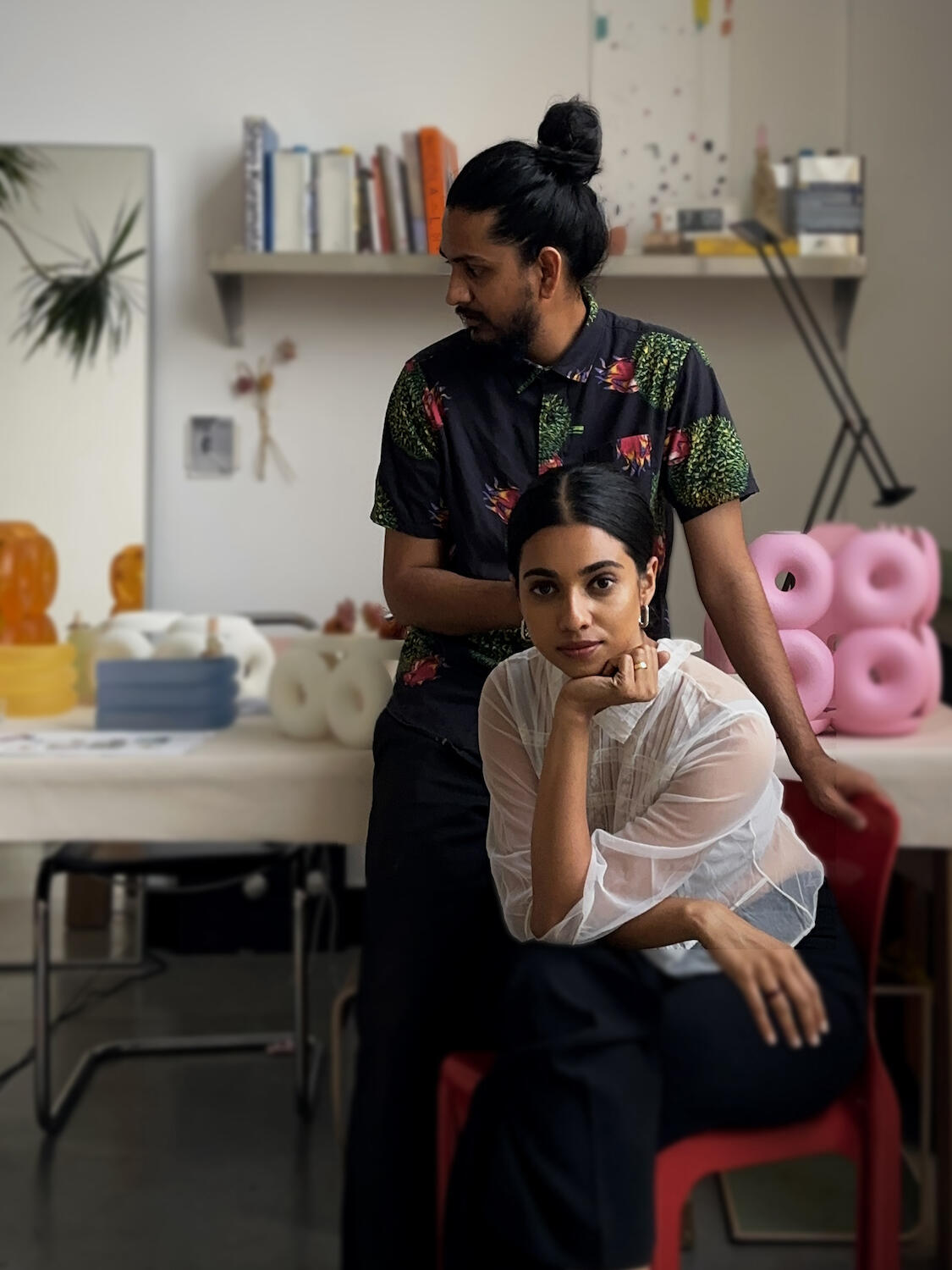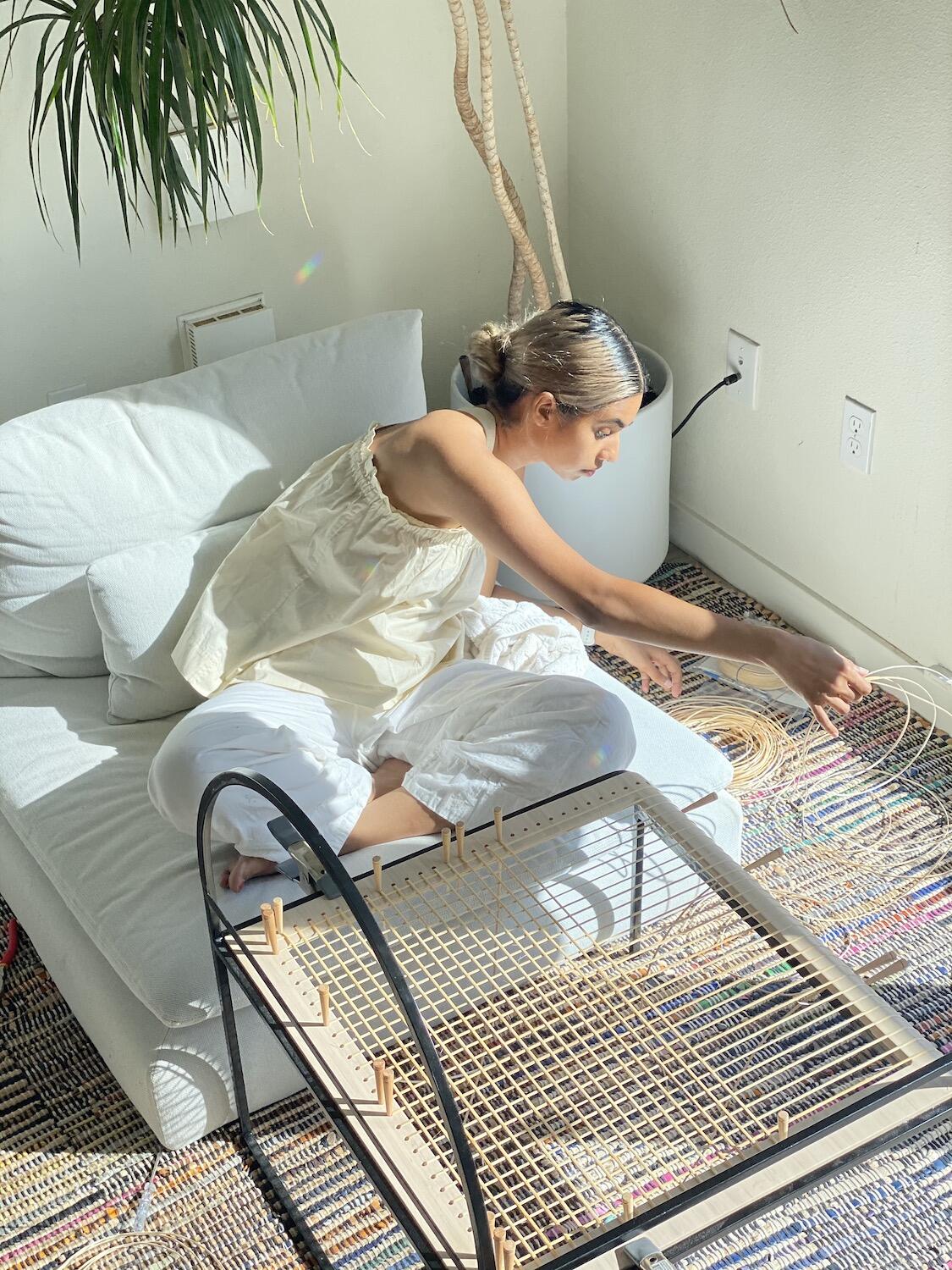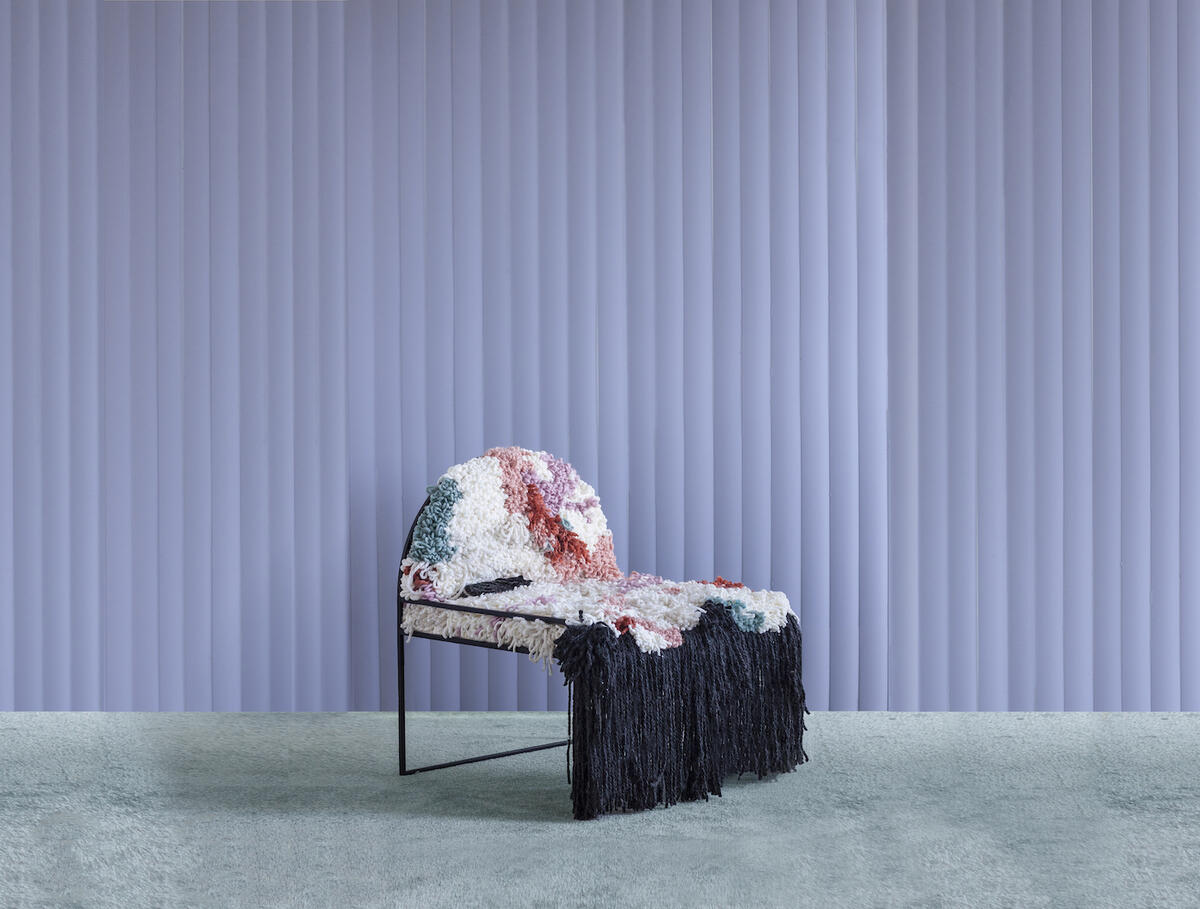Utharaa L Zacharias and Palaash Chaudhary are problem solvers. The San Francisco–based founders and life partners behind Soft-Geometry are on a mission to honor traditional Indian craft traditions without reducing them to superficial patterns and colors. “We are trying to solve the puzzle of what it means to be a contemporary Indian design studio,” Zacharias tells Business of Home.

Growing up in India—Zacharias in Kochi, Kerala, and Chaudhary in Ghaziabad, near New Delhi—they were immersed in India’s craft-driven culture. “We were both lucky enough to be raised in a country with a pervasive commitment to beauty and ornament that goes beyond functionality,” says Zacharias. “[There’s] a reverence to hand-making and skill over machined efficiencies and a stubborn need for expressiveness, however inconvenient.”
The couple met in college while taking a product design course at the National Institute of Fashion Technology in New Delhi and they quickly bonded over their shared admiration for decorative arts. “When we worked together for the first time in college on an assignment, we realized the extent that there was to learn from each other,” says Chaudhary. “So, we kept collaborating after graduation, through jobs when we were in different cities, then through applications to grad school, then in grad school at the Savannah College of Art and Design, where Utharaa earned a master’s in furniture design and I, in industrial design.”
After earning their postgraduate degrees, the pair relocated to San Francisco and began working on what would become their inaugural collection: SW, a three-piece line of geometric steel furnishings adorned in everything from hand-woven cane to velvet upholstery and knotted yarn. “We showed our first collection at WantedDesign in New York in 2018 as part of Launch Pad, and officially launched our design studio the following year,” says Zacharias.

Chaudhary describes the duo’s design process as a “two-person dance—sometimes delicate, sometimes rushed, and with lots of ebbs and flows.” Each product usually begins with a sketch that goes back and forth between the two until a form and materials are settled upon. “Once we have the skeletons figured out, it becomes a messy maker’s studio, where we’re hands-on with building things, casting things, sanding things, and [inevitably] breaking things,” he says.
In addition to chairs, benches and tables, the pair also crafts bespoke lighting pieces—specifically, tubular hand-cast resin table lamps. “During the pandemic, things were looking rather dark and bleak, so we wanted to create soft light,” explains Chaudhary. “We remembered frosted sugar jellies and how we’d hold them up against the light as children. That memory inspired the idea of an object with a frosted exterior to scatter light and a transparent interior that would hold and emit a soft glow.”
For their latest introduction, Mirrors for Aliens, the pair tackled the paradoxical nature of their cultural duality head-on. The design reimagines a classic Indian thali (a segmented steel serving platter often used in households and restaurants) as a hand-polished wall mirror that signifies the designers’ transient identities. “Born and raised in India and now working on American visas, our identity is often one of impermanence,” says Zacharias. “The mirrored steel offers slightly distorted, soft reflections that speak to our blurred sense of identity and the complex emotional landscape that comes with living between cultures, countries, home and work.”

Currently hard at work on a new line of resin sculptures inspired by hand-made Athangudi floor tiles from the Chettinad region of India, the pair continues to experiment with new forms, materials and time-honored craft techniques. “In 10 years, I hope our practice brings us closer still to India and home, in terms of the Indian-isms we take inspiration from, and of course, the objects we make,” says Zacharias.
If you want to learn more about Utharaa L Zacharias and Palaash Chaudhary, visit Soft-Geometry’s website or Instagram.




























